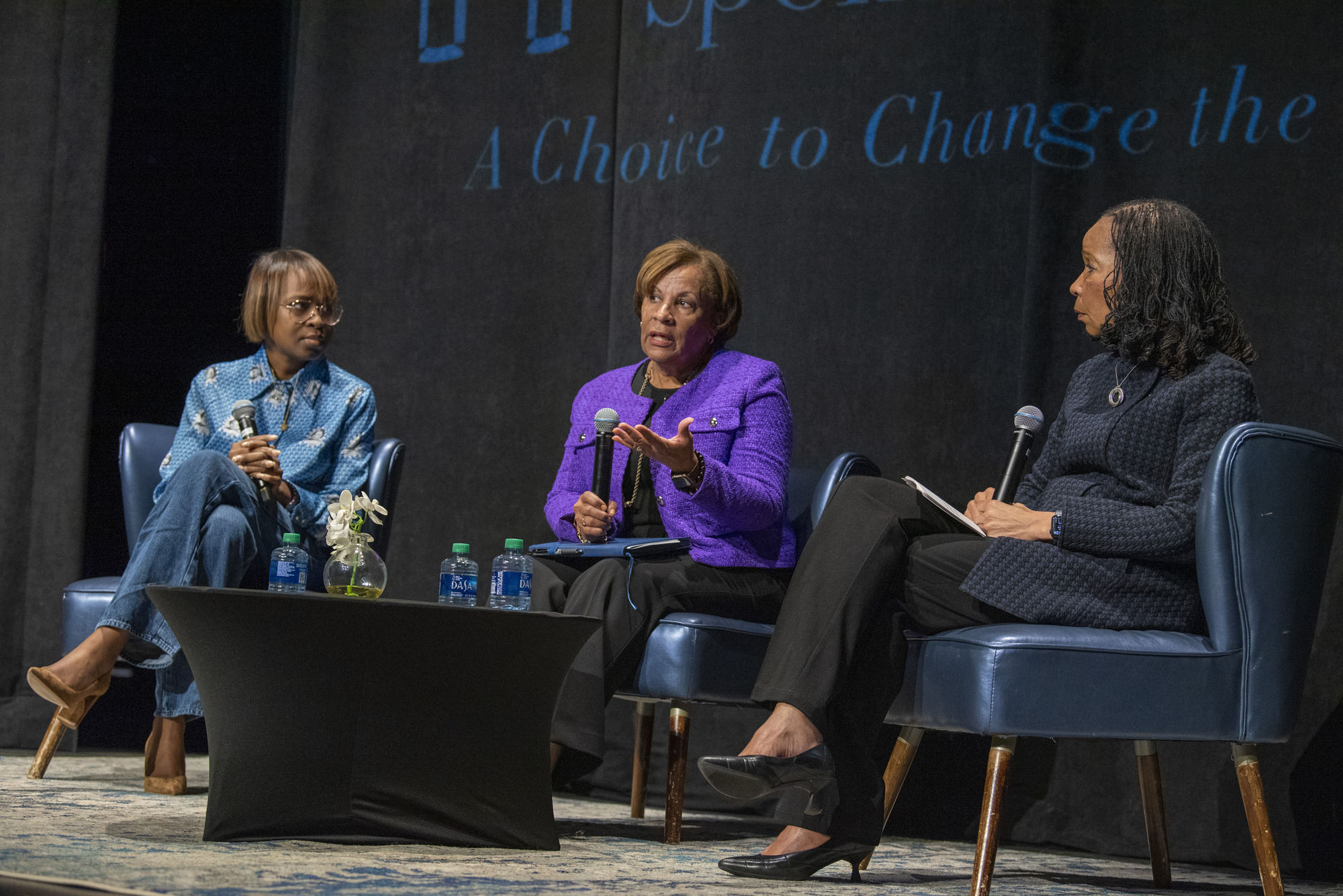Courtesy of Spelman College
Spelman College welcomed award-winning journalist Errin Haines, editor-at-large and one of the founders of news publication The 19th, for a special edition of the College’s Courageous Conversations series titled “Power of the Black Woman Vote,” powered by UPS.
President Helene Gayle and Director of Spelman’s Social Justice Fellows Program Dr. Cynthia Spence engaged Haines in a powerful dialogue, where they discussed the upcoming 2024 presidential election, the importance of Black women’s suffrage and the biggest issues on the ballot.
Dr. Gayle led the conversation, asking Dr. Spence and Haines questions about the history of Black suffrage and its connection to the state of voting rights today. Both Dr. Spence and Haines emphasized the importance of utilizing the right to vote and ensuring Black women’s voices are heard.
Dr. Spence, an associate professor of sociology at Spelman, took special care to note the trend of disinterest she has seen in this generation of voters and the steps Spelman is taking to keep students educated and engaged in the political process, including the College’s ‘Why We Vote’ series, an educational series through the Social Justice Program.
“We thought it was important to host the series because our students, many of them feel disenchanted with the way politics work,” said Dr. Spence. “They’re disenchanted with the individuals who hold positions of power, and they believe that their voices don’t matter.”
Dr. Spence shared the variety of methods she uses to engage students in the voting process like validating their concerns, addressing the gaps in voting education and encouraging the students to remain knowledgeable about their local elections.
During the Q+A, students asked insightful questions and shared their understanding of the current political climate. One student expressed the exhaustion involved with taking two steps forward and one step back when it comes to progress but remained hopeful for the future of democracy and liberation.
Haines encouraged the audience of students, staff and faculty to focus on achieving progress that stands to benefit future generations.
“How are we setting up the Black women in this country to help [future generations]?” asked Haines. “The change that we push for is not change we will necessarily see in our lifetime, but how are we moving progress forward?”
Toward the end of the discussion, Haines emphasized the importance of empowering Black girls and women to become active participants in the policy changes impacting them.
“If there’s a Black woman in your life that is thinking about running for office, if there’s a Black woman in your life who you think should run for office, encourage that Black woman,” said Haines. “A lot of times, that is what pushes them over the line to them just thinking about it to them actually believing they can do it.”

